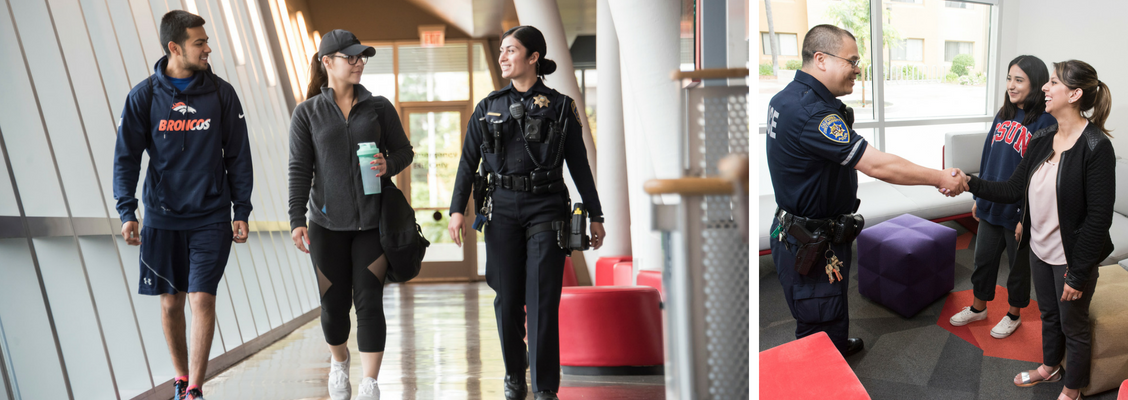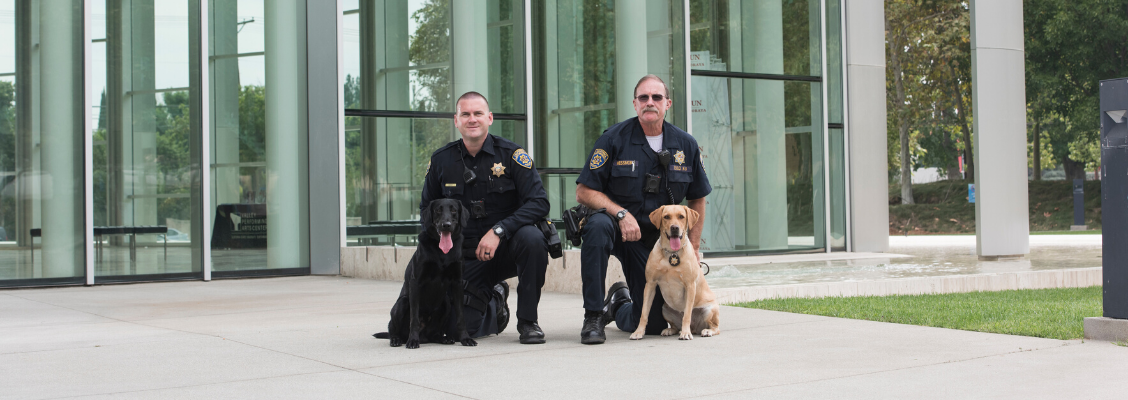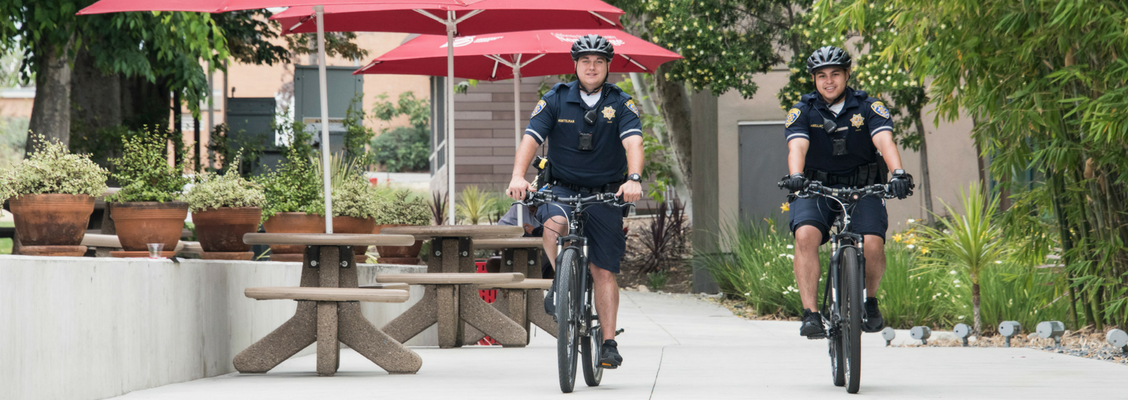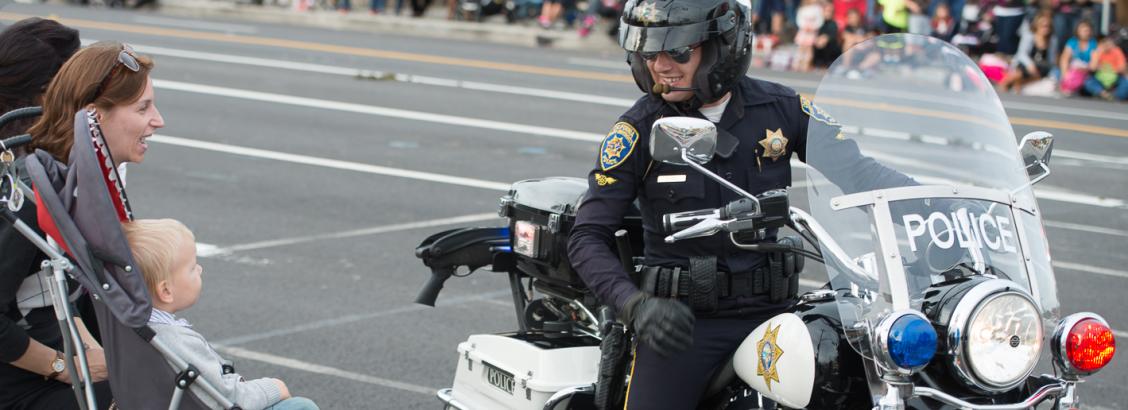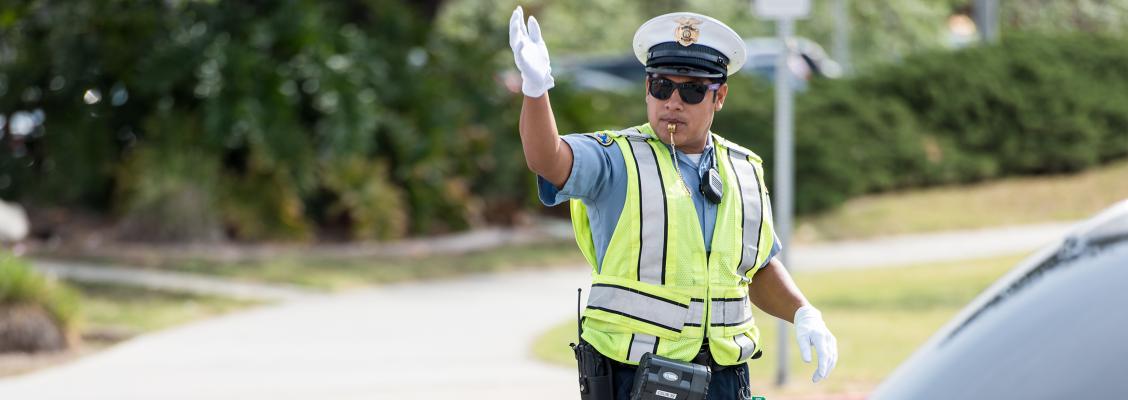A physical disability—impaired vision, hearing, or mobility— doesn’t prevent you from being a victim of crime. Common sense actions can reduce your risk. The Crime Prevention Unit offers programs and resources designed for the personal safety needs of students, staff and faculty with disabilities. If you have any questions or would like additional information, please contact the Crime Prevention Unit at 818-677-7922.
GENERAL SAFETY TIPS
- Stay alert and tuned in to your surroundings, whether on the street, in an office building or shopping mall, driving, or waiting for the bus or subway.
- Send a message that you’re calm, confident, and know where you’re going.
- Be realistic about your limitations. Avoid places or situations that put you at risk.
- Know the neighborhood where you live and work. Check out the locations of police and fire stations, public telephones, hospitals, restaurants, or stores that are open and accessible.
- Avoid establishing predictable activity patterns. Most of us have daily routines, but never varying them may increase your vulnerability to crime.
AT HOME
- Put good locks on all your doors. Police recommend double-cylinder, deadbolt locks, but make sure you can easily use the locks you install.
- Install peepholes on front and back doors at your eye level. This is especially important if you use a wheelchair.
- Get to know your neighbors. Watchful neighbors who look out for you are a frontline defense against crime.
- If you have difficulty speaking, have a friend record a message—giving your name, address, and type of disability to use in emergencies. Keep the tape in a recorder next to your phone.
- Ask your police department to conduct a free home security survey to help identify your individual needs.
OUT AND ABOUT
- If possible, go with a friend.
- Stick to well-lighted, well-traveled streets. Avoid shortcuts through vacant lots, wooded areas, parking lots, or alleys.
- Let someone know where you are going and when you expect to return.
- Carry a purse close to your body, not dangling by the straps. Put a wallet in an inside coat or front pants pocket. If you use a wheelchair, keep your purse or wallet tucked snugly between you and the inside of the chair.
- If you use a knapsack, make sure it is securely shut.
- Always carry your medical information in case of an emergency.
- Consider keeping a cellular phone or installing a CB radio in your vehicle.
ON PUBLIC TRANSPORTATION
- Use well-lighted, busy stops. Stay near other passengers.
- Stay alert. Don’t doze or daydream.
- If someone harasses you, make a loud noise or say “Leave me alone.” If that doesn’t work, hit the emergency signal on the bus or train.
- TAKE A STAND!
- Join, or help organize, a Neighborhood Watch group. Make sure their meetings are accessible to people with disabilities. For example, do they need a sign language interpreter? Can individuals who use walkers, crutches, or wheelchairs enter the meeting place?
- Work with local law enforcement to improve responses to all victims or witnesses of crime. Role-play how people with disabilities can handle threatening situations.
- Work with rehabilitation center or advocacy groups to offer a presentation to schools and other community organizations on the needs and concerns of individuals with disabilities.



